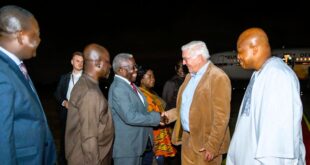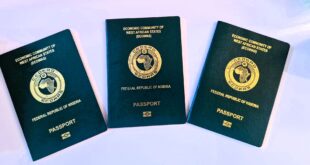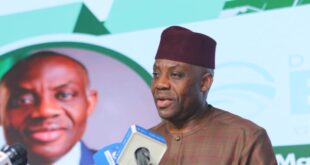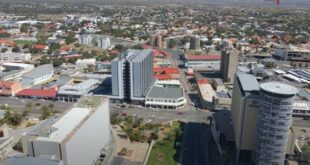Ibrahim Traore was declared president of Burkina Faso on Wednesday after a two-day standoff that ousted Lieutenant-Colonel Paul-Henri Damiba, who had seized power only in January.
Just a week ago, 34-year-old Traore, the head of a core of disgruntled junior officers, was unknown in his country.
But in the space of a weekend, he has catapulted himself from army captain to the world’s youngest leader – an ascent that has stoked hopes but also fears for the troubled country.
The motive for the latest coup – as in January – was anger at failures to stem a seven-year jihadist insurgency that has claimed thousands of lives and driven nearly two million people from their homes.
On Wednesday, Traore was declared president and “guarantor of national independence, territorial integrity… and continuity of the State.”
At that lofty moment, Traore became the world’s youngest leader, wresting the title from Chilean President Gabriel Boric, who is two years older.
Soldiers have been frustrated with the way the government has been directing the war against Islamist insurgents. Disillusionment turned into anger after an attack on a convoy in northern Burkina last month that left 27 soldiers and 10 civilians dead.
“Captain Traore symbolises the exasperation of junior officers and the rank and file,” said security consultant Mahamoudou Savadogo.
The new president faces a daunting task in regaining the upper hand over jihadist groups, some affiliated with Al-Qaeda and others with the Islamic State. They have steadily gained ground since they launched their attacks from Mali in 2015.
However, it remains to be seen if the new military regime would be able to do better than the one it replaced. Just like in Mali, Burkinabes believe that the French has not been honest in their support for their country as France is even suspected of backing the insurgents. This has led to growing support for a tilt towards Russia, whose military contractors are currently backing the Malian government in its own war against the Islamist insurgents.
Analysts believe the solution to the instability in the Sahel depends on how the regional bloc ECOWAS is able to marshal its resources to back the governments of Mali and Burkina Faso to restore peace to the troubled region.
Kola Della
 THE AFRICAN COURIER. Reporting Africa and its Diaspora! The African Courier is an international magazine published in Germany to report on Africa and the Diaspora African experience. The first issue of the bimonthly magazine appeared on the newsstands on 15 February 1998. The African Courier is a communication forum for European-African political, economic and cultural exchanges, and a voice for Africa in Europe.
THE AFRICAN COURIER. Reporting Africa and its Diaspora! The African Courier is an international magazine published in Germany to report on Africa and the Diaspora African experience. The first issue of the bimonthly magazine appeared on the newsstands on 15 February 1998. The African Courier is a communication forum for European-African political, economic and cultural exchanges, and a voice for Africa in Europe.

































